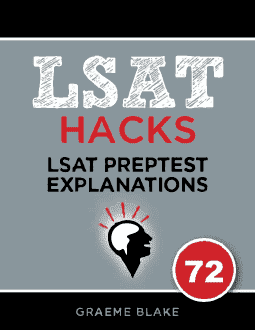DISCUSSION: Passage B’s main argument is that the rich will pay less under a flat tax system, and the middle classes will pay more (see lines 55-58). This contradicts the claim in paragraph 3 of passage A.
Passage A doesn’t say outright that the middle classes will not pay more under a flat tax. But paragraphs 2 and 3 of passage A argue that flat taxes can be progressive, and they can raise as much money from the rich as current systems do.
This implies but doesn’t states that flat taxes should raise as much money from each segment as before. So presumably if the rich are paying as much as before, the middle class should also pay the same amount, if we are raising the same amount of revenue.
The right answer, D, challenges this by showing that the middle class pay more in flat tax countries. This likely means that the rich are paying less (the poor already weren’t paying). So this weakens passage A’s argument that flat taxes can raise as much from the rich. This answer is a bit of a stretch, but it’s the best one.
___________
- Equal revenues don’t prove anything. Passage B is talking about who pays revenue. Their claim is that the rich will pay less, even if total revenue is the same.
- This supports passage A. Passage A is arguing for a simple tax code.
- Who cares what rich people believe? The passages are talking about what actually happens. Beliefs are often false.
- CORRECT. See lines 55-58. This is exactly what the author of passage B predicted. They thought the rich would pay less and the middle classes would pay more.
Passage A never mentions what middle income payers will pay, but it’s implied that middle income people will pay the same since in lines 26-29 they argue that rich people will also pay about the same. The author of passage A is claiming that the new flat tax system is just as fair as the old system. - This is like C. It doesn’t matter what legislators believe. They might be idiots.


Leave a Reply